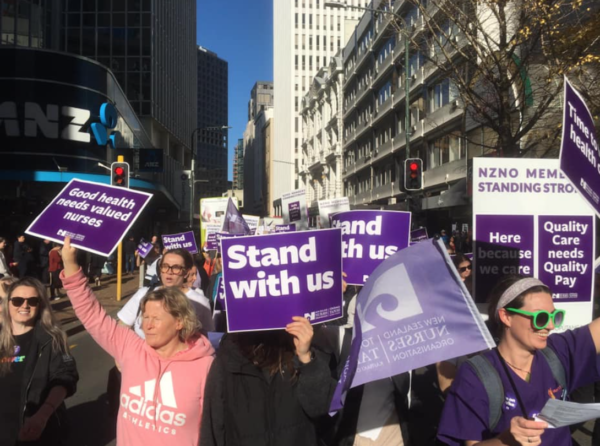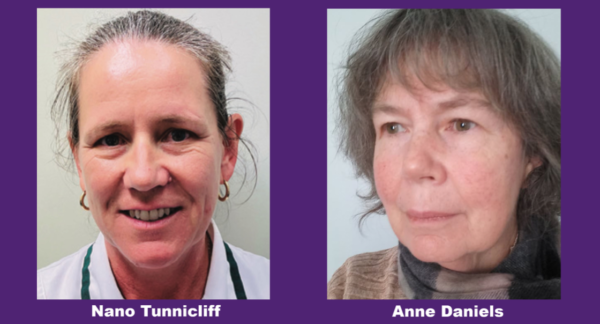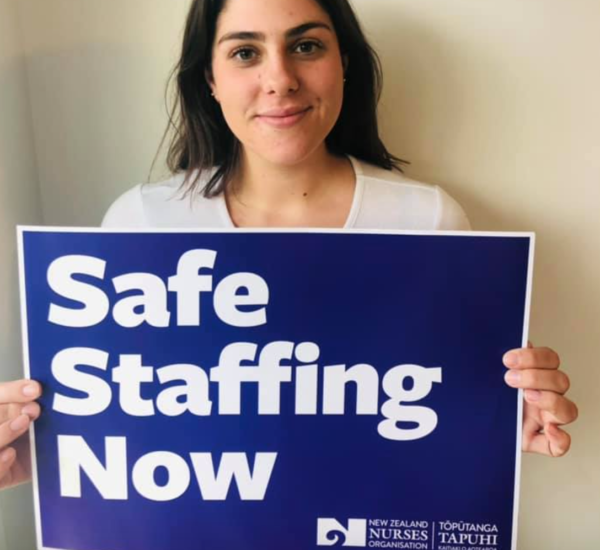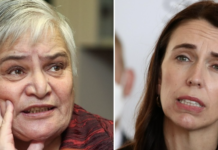Voting is under way in the NZNO Board Election. There are six candidates, standing for the two positions of NZNO President and Vice-President. Financial members of NZNO have until September 10 to cast their vote. What should guide their choice? I think there are seven key considerations:
- ‘Our union needs to change’
- Back ourselves to make the change
- We need people who are proud to be union
- Nurses are ethical – our leaders should be too
- End the secrecy – give us Board transparency
- Fulfil the promise to be ‘membership-driven’
- Pick the champions of safe staffing
For most NZNO members, a 150-word candidate profile statement is all they have to go on. I have the benefit of some additional information, having known the majority of the candidates for many years and worked alongside several on the NZNO Board before.
I’ve thought long and hard about how to present this information. Ordinarily, I would shy away from sharing my knowledge about how other candidates measure up against key considerations like these. But the stakes today are too high. NZNO is balanced on a knife-edge, between two different pathways. Right now, powered by a phenomenal DHB MECA campaign, NZNO has the possibility of becoming the union its members want and need it to be. Alternatively, there’s a very real chance that the wrong leaders could cement NZNO’s past failures.
‘Our union needs to change’

The opening words in Anne Daniels’ profile statement get straight to the heart of the matter: “Our union needs to change.”
The change we need is already under way. The 2021 DHB MECA campaign is demonstrating what a great union NZNO can be. The campaign is engaging, united, member driven, transparent and strong – light years ahead of where we were in 2018.
But this must not be a one-off, and it mustn’t be limited to DHB members only.
To complete the transformation and extend its benefits to everyone, we need an NZNO Board that mirrors our union at its best. The first step along this pathway is to elect a new NZNO President and Vice-President. The next step will come in 2022, when seven other Board members will also be up for election.
The fundamental choice now is between fresh leadership for NZNO, or a continuation of the secrecy, personal agendas and disregard of the membership which have derailed the Board, weakened the union and cost us all dearly.
Back ourselves to make the change

If we want a union that fights for us, it needs to be led by people like us. Anne Daniels and Nano Tunnicliff are nurses who work on the floor, in busy hospitals. They aren’t based in an office, working nine to five. They understand the pressures we feel about understaffing and poor pay because they experience it personally, too.
The same cannot be said about any of the other candidates.
We need people who are proud to be union
When I was elected to the NZNO Board in 2015, I was shocked to discover that the other Board members didn’t believe NZNO should be focused on the pay and conditions of its fee-paying members. They were even uncomfortable with the idea that we’re a union.
“NZNO is, to me, firstly a professional organisation”, wrote one. “If union passion could be harnessed for professionalism, imagine how much more visible nurses could be!”. Excluding myself, that was the general consensus. None of them had ever taken industrial action with their fellow members to improve pay and conditions for all. Most had never been on a union protest. Several were business owners themselves. One was married to an MP in the governing National Party, which was busy passing anti-union laws, and another didn’t believe that unions should exist..
When it came time at a Board meeting in early 2019 for the Board to start developing a new Strategic Plan to guide NZNO into the future,
“The chief executive drew the Board’s attention to the previous strategic plan process where the description of NZNO was changed in 2015 from a “union and professional association” to a “professional association and union”, reflecting a stronger emphasis on promoting the profession. The chief executive acknowledged that NZNO needs to do more to profile the nursing profession and advised that the media have been able to cherry-pick information about NZNO activities making a stronger reference to being a ‘union’ than a ‘nursing professional association’.”
I was the only Board member at that meeting who objected to this pathway, which would have taken us even further away from a union focus on the pay and working conditions of my fellow members. I was very disappointed when the others (including current Vice-Presidential contender Cheryl Hammond) went along with it.
But that future direction for NZNO changed when Anne Daniels and others were elected to the Board in late 2019. For 30 years, Anne had proudly led a multitude union actions and campaigns to protect NZNO members. Under her influence, the Board’s development of the Strategic Plan 2021-25 took a very different path – focused on making NZNO a membership-led union. She also established a Board MECA committee to make sure that NZNO learnt the many lessons of the troubled 2018 DHB MECA campaign, as contained in the independent reviewer’s report by former CTU president Ross Wilson.
Nano Tunnicliff’s union credentials are just as impressive. I first got to know Nano in 2008, when we were both on what was then the top elected union body in NZNO – the DHB National Delegates Committee. But Nano had been a successful union leader for years by that time – including as a negotiator for the historic first DHB MECA in 2004, and before that as a union organiser in the Australian Nursing Federation (which partly explains her strong support for nurse-patient ratios).
None of the other candidates come close, in their commitment to union members, leadership experience and union pride.
Nurses are ethical – our leaders should be too
Anne Daniels has proven that she’s that special kind of leader who puts ethical values ahead of her own personal advancement. Along with fellow Board members Katrina Hopkinson and Sela Ikavuka, she took a principled stand in April 2020 when she courageously resigned from the NZNO Board. “Our personal and professional values were constantly compromised”, the trio wrote. “To remain would be condoning behaviour we know does not meet the members standards.”
Long-running concerns about unethical behaviour on the NZNO Board, which Anne Daniels and I experienced personally, were finally validated by an independent NZNO Governance Review in late 2020 which inquired into the Board’s activities over the previous 24 months.
The review was conducted bi-culturally, by commercial corporate lawyer with the Tuia Group, Guy Royal (Ngāti Raukawa, Parehauraki, Ngāti Hine, Ngāpuhi), and leadership development manager at Canterbury-based company Brannigans Human Capital, Chris Bailey. Both of the reviewers and their terms of reference were approved by Te Poari as well as the Board.
Despite a statement that the review would “highlight what can be improved upon and this can be conveyed to members”, the final report has been suppressed. Only its 33 concluding recommendations have been released to the NZNO membership, so we do not know the full extent of the ethical issue it uncovered. But the recommendations clearly reveal its existence, stating that the Board should review its Code of Conduct, “including clarifying the consequences of breaching the code”. They also called for the Board to “improve the capability of the Chair with respect to Board ethics”.
Incumbent Board members now standing for election as President and Vice-President, as well as those who were on the Board during the 24 months from 2018 to 2020, have questions to answer about ethical governance. Does Cheryl Hammond, for instance, believe it was ethical for the Board to spend three times as much members’ money on its own legal wrangles in 2018-19 as the entire amount budgeted ($80,770) for the 2018 DHB MECA campaign?
The questions are even more pertinent for the candidate standing for both positions, Tracey Morgan.u
Morgan’s statement of skills and experience declares an extensive list of past governance roles, including a stint assisting Co-Chair Kerri Nuku as NZNO’s Tumu Whakarae. Yet it also contains omissions. Why for instance is there no mention of her past role as director in a company which was 100 percent owned, according to Companies Office records, by Nuku’s husband (although oddly, Nuku has also claimed to be the owner herself). What should voters make of this failure to declare a web of past business dealings with another member of the NZNO Board – one whose own capability with respect to Board ethics should be “improved”? What else has been omitted from the information presented by this candidate? Is there any truth to the serious and detailed allegations made about her by a former NZNO Board member in public Facebook posts?
End the secrecy – give us Board transparency

Many people were shocked to learn, when three Board members resigned last year, that elected NZNO Board Members are obliged to sign a non-disclosure disclosure agreement which prevents them from sharing information with other NZNO members. “Right from the start, we were required to sign a confidentiality agreement before our first meeting”, they said.
The Board of any organisation shapes the culture of that organisation. The NZNO Board’s appalling misuse of standard governance confidentiality obligations has created a culture of secrecy which has infected the union as a whole. In many areas of NZNO, members and staff have been silenced and are now too afraid to speak up. It appears that the independent NZNO Governance Review conducted in late 2020 identified this problem, as it recommended that, “The Board establishes a Board-level protected disclosures (whistleblower) policy.” But there is no sign of progress on this recommendation. On the contrary, the current Board’s lack of transparency is getting worse.
Knowledge is power. By keeping the membership in the dark, the Board actively disempowers us. But the reverse is also true. The unprecedented openness and transparency seen in the magnificent DHB MECA campaign this year is a source of our new-found strength. It is part of the reason why we can now stand up for fair pay and safe staffing. In this election, we must vote for a President and Vice-President who will carry this change forward, not roll it back.
Only two candidates speak about the issue of Board transparency and member empowerment in their candidate profile statements – Anne Daniels and Nano Tunnicliff.
After being elected to the Board in 2019, Anne Daniels put up the strongest opposition to the gagging order preventing Board members from sharing information with the membership. She was the very last Board member to sign it. I wish to apologise publicly for being the one who persuaded her to do this. I hope that by speaking out now, I can go some way towards making amends.
When Anne Daniels says, in her candidate profile, that she stands for “a union that empowers members to take the lead”, you can believe her. Her track record speaks for itself. So does Nano Tunnicliff’s. When she says in her profile statement, “I want to see improved transparency”, she means it.
Fulfil the promise to be ‘membership-driven’
Members and staff alike are sick and tired of NZNO being driven by personal agendas at the top, not the needs of the membership as a whole. That was the clear message which came through the strategic planning consultation in December 2019. As the reviewer said, “Demonstrating that NZNO is a membership-driven organisation – this was by far the strongest message to come through from almost everyone”.
In early 2020, under the influence of Anne Daniels, the Board was pushed to sign off a draft Strategic Plan which reflected this feedback. As a fellow Board member at the time, I can personally vouch for the truth of her statement: “I helped write the current strategic plan, advocating for a member led union.”
But in June 2020, just weeks after our resignations from the Board, the back-peddling had begun. Kaiwhakahaere Kerri Nuku pulled support for the membership-driven Strategic Plan 2021-25, complaining that (amongst other things) it was too “DHB-centric”.
Thankfully, with the 2020 AGM and the deadline for finalising the plan fast approaching, it was too late for it to be rewritten. The Strategic Plan 2021-25 went through, as originally drafted, to become the guiding light for today’s member-driven DHB MECA campaign and also for Nano Tunnicliff’s Vice-Presidential pledge: “I will work towards the goal of the strategic plan to ensure that NZNO is a membership driven organisation.”
And yet, outside of these campaigns, it’s almost like the document does not exist. No other candidate in the election is talking about NZNO as a “member-led” or “membership driven” organisation. Their profile statements don’t even refer to our union’s overall guiding strategy. It’s as if the prediction I made before the 2020 NZNO AGM is already coming to pass:
“There are unlikely to be major changes to the draft NZNO Strategic Plan 2021-25 at this late stage, given that it’s been approved by the Board, sent for final consultation to all member groups and is due to be formally adopted at the AGM next month. What’s more likely to happen is that it will be adopted without the blessing of the kaiwhakahaere, then sit in a drawer for the next five years gathering dust while her agenda sets the direction.”
There is another pathway we can take. Powered by the phenomenal 2021 DHB MECA campaign, we can elect new leaders who will make NZNO the membership-led union we all want it to be.
Pick the champions of safe staffing

Isn’t it incredible that today, in the midst of a nursing crisis which is shaking the entire health system, four of the six candidates standing for NZNO President and Vice-President make no mention at all of safe staffing in their election statements?
NZNO has been treading the same path in pursuit of safe staffing for almost two decades. We are no closer to that goal. We need leaders with a new plan that can work. Anne Daniels has such a plan.
In 2020, she and I co-wrote a policy remit for a “Review of NZNO strategies for safe staffing”. When it was put to NZNO members in a referendum last August, they voted:
“That NZNO shall, during the 2021/22 year:
1) Conduct an independent evaluation of its current Safe Staffing strategies, including CCDM, and publish any results showing significant outcomes for nursing workloads and patient safety at a national level; and
2) Present options to campaign for additional Safe Staffing mechanisms, including legislated minimum nurse/ patient ratios, for consideration and endorsement by NZNO members.”
Sadly, after Anne Daniels, Katrina Hopkinson, Sela Ikavuka and I resigned from the Board in April 2020, the impetus for this member-driven change was suppressed. The remaining Board members have tied up the review of safe staffing strategies in bureaucratic red tape. The proposed start date for the review came and went months ago, without even a murmur. In reality, unless there is fresh leadership on the Board, the review that NZNO members voted for and desperately need is unlikely to lead anywhere.
Anne Daniels now says, “I co-wrote a successful remit to start the work towards safe staffing legislation. This must happen.” Nano Tunnicliff agrees, saying: “I will advocate for nurse patient ratios.”
The choice in this election is clear. Pick the champions of safe staffing.
• Lightly edited and re-posted from Grant Brookes – Nurse & Trade Unionist






The new effective way to break unions is to fill them with people who have a different cause or ideology and thus destroy them from the inside. Don’t expect workers rights and by extension, productivity and innovation to improve under this model. NZ is still full of Rogernomics managers and they seldom hire anyone outside the culture, thus people who are bright, qualified, socially aware and experienced still suffer in NZ, as they can’t get ahead. Everywhere in government and industry paths to improvement are largely blocked by seat warmers, who get their jollies by bullying others or financial gain to themselves. Look at Lester Levy post, this Rogernomics manager fails financially again and again, but still supported in NZ by the Rogernoms in his failure.
Anne Daniels is Kosher
Comments are closed.